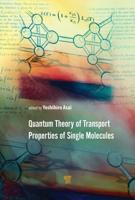Publisher's Synopsis
This book introduces QPLEX, a powerful computational framework designed for modeling and analyzing nonstationary stochastic systems with large state spaces. The methodology excels at rapidly and accurately generating approximate distributions of system performance over time, offering a robust tool for understanding the dynamics of such systems. QPLEX circumvents the curse of dimensionality by imposing conditional independence, which may be represented via a probabilistic graphical model, and exploiting model dynamics. It is specifically crafted for transient analysis of nonstationary systems, often encountered in practical applications but rarely addressed by traditional techniques. It can work directly with empirical distributions and requires no stability assumptions. Since its output is not noisy, QPLEX is tailor-made for sensitivity analysis and optimization.
The methodology's few model primitives are flexible enough to specify a rich array of models. For example, models representing queueing networks can exhibit challenging characteristics such as short operational horizons; time-varying arrival rates, service durations, and numbers of servers; and complex routing of entities.
The text is accessible to those with engineering, computer science, or mathematics backgrounds and knowledge of probability and stochastic models at the advanced undergraduate level. Many fully worked-out examples aid the comprehension of the concepts and calculations, ensuring readers can effectively apply the methods to real-world systems and making this book a valuable resource for researchers and practitioners alike.
This is an open access book.










